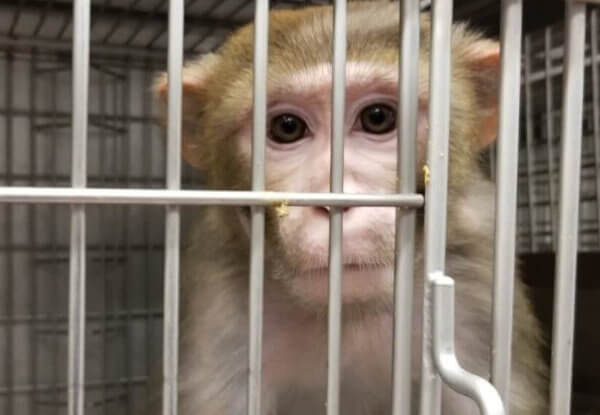Alternatives to Animal Testing
Experiments on animals are cruel, expensive, and generally inapplicable to humans. The world’s most forward-thinking scientists have moved on to develop and use methods for studying diseases and testing products that replace animals and are actually relevant to human health. Non-animal methods are not hindered by species differences that make applying animal test results to humans difficult or impossible, and they usually take less time and money to complete.
PETA funds the development of many of these non-animal methods, vigorously promotes their use to governments and companies around the world, and publishes research on their superiority to animal tests.
Below are just a few examples of the variety of state-of-the-art non-animal methods available and their demonstrated benefits.

PETA and medical doctors from Northwestern University School of Medicine and Harvard Medical School met with senior federal government officials and did a demonstration at the MedStar Health Simulation Training & Education Lab (SiTEL) in Baltimore, MD, about the benefits of replacing animal use in trauma training with advanced human patient simulators, including a demo of Caesar and TraumaMan.
In Vitro Testing
Scientists have created “organs-on-chips” that contain human cells grown in a state-of-the-art system to mimic the structure and function of human organs and organ systems. The chips can be used instead of animals in disease research, drug testing, and toxicity testing, and they can replicate human physiology more accurately than animal experiments do.
A variety of cell-based tests and tissue models can be used to assess the safety of drugs, chemicals, cosmetics, and consumer products. Such models replace animals who undergo painful, prolonged experiments that are used to evaluate chemicals for their ability to corrode or irritate the skin.
Computer (In Silico) Modeling
Researchers have developed a wide range of sophisticated computer models that simulate human biology and the progression of developing diseases. Studies show that these models can accurately predict the ways that new drugs will react in the human body and replace the use of animals in exploratory research and many standard drug tests.
Human Volunteers
Not only are human volunteers more reliable test models, they also have the power to choose to be a part of an experiment—unlike animals. In “microdosing,” volunteers take an extremely small dose of an experimental drug so that researchers can see how it is metabolized in the human body. The behavior of the drug is monitored closely with sophisticated imaging techniques.
Advanced brain imaging and recording techniques with human volunteers can be used to replace archaic experiments in which rats, cats, and monkeys have their brains damaged. These modern techniques allow the human brain to be studied safely down to the level of a single neuron, and researchers can even temporarily and reversibly induce brain disorders using transcranial magnetic stimulation.
Human-Patient Simulators
Strikingly life-like computerized human-patient simulators that breathe, bleed, convulse, talk, and even “die” have been shown to teach students physiology and pharmacology better than crude exercises that involve cutting up animals. The most high-tech simulators mimic illnesses and injuries and give the appropriate biological response to medical interventions and injections of medications.
Choose Compassion
Compassionate consumers who boycott products that have been tested on animals play a vital role in pushing companies and government agencies to adopt more relevant and humane non-animal testing methods. There is an abundance of companies that take pride in their cruelty-free products, and the world’s most progressive scientists no longer use animals in their laboratories. You can help animals every time you choose compassion—whether it’s in the shopping mall or in science class.









